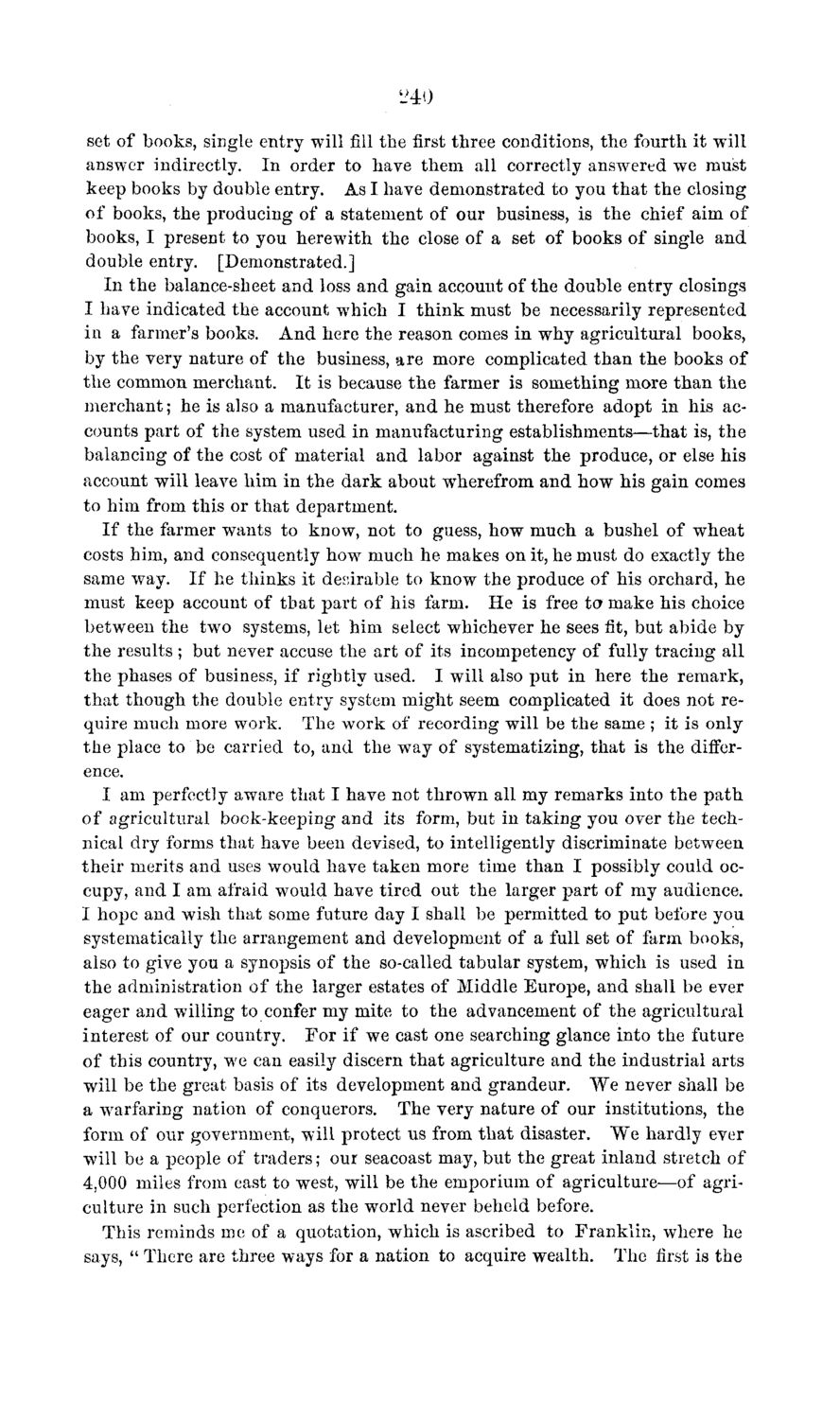| |
| |
Caption: Board of Trustees Minutes - 1869
This is a reduced-resolution page image for fast online browsing.

EXTRACTED TEXT FROM PAGE:
ii40 set of books, single entry will fill the first three conditions, the fourth it will answer indirectly. In order to have them all correctly answered we must keep books by double entry. As I have demonstrated to you that the closing of books, the producing of a statement of our business, is the chief aim of books, I present to you herewith the close of a set of books of single and double entry. [Demonstrated.] In the balance-sheet and loss and gain account of the double entry closings I have indicated the account which I t h i n k must be necessarily represented in a farmer's books. And here the reason comes in why agricultural books, by the very nature of the business, are more complicated than the books of the common merchant. It is because the farmer is something more than t h e merchant; he is also a manufacturer, and he must therefore adopt in his accounts part of the system used in manufacturing establishments—that is, the balancing of the cost of material and labor against the produce, or else his account will leave him in the d a r k about wherefrom and how his gain comes to him from this or that department. If the farmer wants to know, not to guess, how much a bushel of wheat costs him, and consequently how much he makes on it, he must do exactly the same way. If he thinks it desirable to know the produce of his orchard, he must keep account of that part of his farm. He is free to make his choice between the two systems, let him select whichever he sees fit, but abide by the results ; but never accuse the art of its incompetency of fully tracing all the phases of business, if rightly used. I will also put in here the remark, that though the double entry system might seem complicated it does not require much more work. The work of recording will be the same ; it is only the place to be carried to, and the way of systematizing, that is the difference. I am perfectly aware that I have not thrown all my remarks into the p a t h of agricultural book-keeping and its form, but in taking you over the technical dry forms that have been devised, to intelligently discriminate between their merits and uses would have taken more time than I possibly could occupy, and I am afraid would have tired out the larger part of my audience. I hope and wish that some future day I shall be permitted to put before you systematically the arrangement and development of a full set of farm books, also to give you a synopsis of the so-called tabular system, which is used in the administration of the larger estates of Middle Europe, and shall be ever eager and willing to confer my mite to the advancement of the agricultural interest of our country. For if we cast one searching glance into the future of this country, we can easily discern that agriculture and the industrial arts will be the great basis of its development and grandeur. We never shall be a warfaring nation of conquerors. The very nature of our institutions, the form of our government, will protect us from that disaster. We hardly ever will be a people of traders; our seacoast may, but the great inland stretch of 4,000 miles from east to west, will be the emporium of agriculture—of agriculture in such perfection as the world never beheld before. This reminds me of a quotation, which is ascribed to Franklin, where he says, " There are three ways for a nation to acquire wealth. The first is the
| |